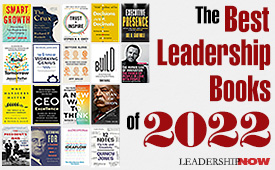 |
 |
12.04.08

What is the Secret of Great Performers?
MALCOLM GLADWELL tells us in Outliers that when it comes to success, context is everything. Only by asking where a person comes from can we understand who succeeds and who doesn’t. Geoff Colvin would agree but there’s more. In Talent is Overrated, Colvin rightly asserts that “great performance is in our hands far more than most of us ever suspected.” When many people never become outstandingly good at what they do, no matter how many years they spend doing it, why do some people become excellent at what they do? Colvin convincingly argues that in general, it’s not innate gifts or intelligence, but what researchers call deliberate practice that creates world-class performers. A study by Anders Ericsson and his associates concluded that “the differences between expert performers and normal adults reflect a life-long period of deliberate effort to improve performance in a specific domain.” Deliberate practice is not your normal practice. It contains several important elements: it’s designed specifically to improve performance (usually with a teacher or coach), it can be repeated ad nauseam, feedback on results are continuously available, it’s highly demanding mentally (focus and concentration), and it isn’t much fun. Add passion and the good news is that great performance is not reserved for a preordained few. It is available to everyone. Colvin’s homework makes a great case for the idea that leaders are developed. What is alarming is Colvin's observation that “At most companies—as well as most educational institutions and many nonprofit organizations—the fundamentals of great performance are mainly unrecognized or ignored.” He writes that organizations that apply the principles of great performance follow several major rules:
Talent is Overrated is the most readable and pragmatic book on the topic. The examples and relevant research cited are compelling and his application of great performance principles to self-development, business development, and innovation are thought-provoking. Related Interest:

Posted by Michael McKinney at 02:29 AM
|
BUILD YOUR KNOWLEDGE


How to Do Your Start-Up Right STRAIGHT TALK FOR START-UPS 
Grow Your Leadership Skills NEW AND UPCOMING LEADERSHIP BOOKS 
Leadership Minute BITE-SIZE CONCEPTS YOU CAN CHEW ON 
Classic Leadership Books BOOKS TO READ BEFORE YOU LEAD |